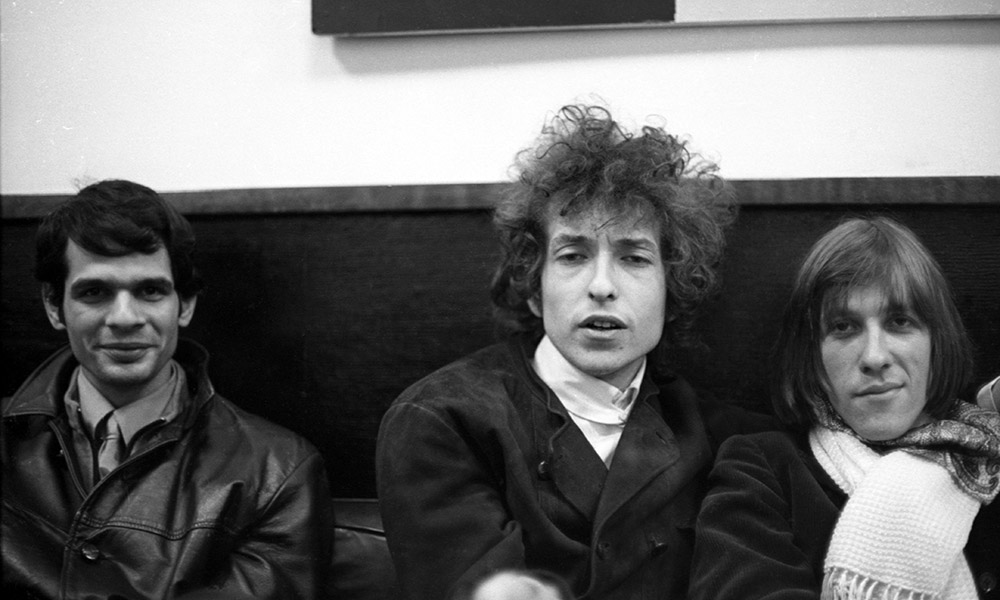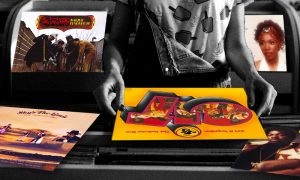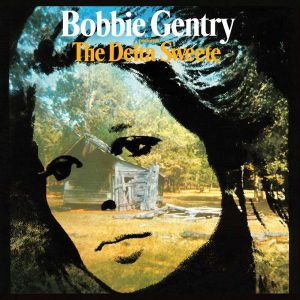In 1965 Verve Records was moving into uncharted territory. From its heyday with Norman Granz, when it was releasing classic recordings through to the early 1960s when Creed Taylor took over and found immediate success with all things Brazilian, most notably Getz/Gilberto, the label had been exclusively jazz. But with younger fans discovering rock, Verve felt the need to branch out. Enter The Blues Project, a band that included twenty-one-year-old Brooklyn native Al Kooper, who was already something of a legend.
Born on February 5, 1944, Kooper’s first musical success was as a fourteen-year-old playing guitar with The Royal Teens, who in 1958 had a No.3 hit on the Hot 100 with the bluesy novelty song, “Short Shorts.” By 1960, Kooper had co-written “This Diamond Ring,” which became a hit for Gary Lewis and the Playboys.
Like A Rolling Stone
Becoming part of the Greenwich Village scene in the mid-60s Kooper played the organ on Bob Dylan’s “Like A Rolling Stone,” which is when he met and became friends with the brilliant guitar player, Mike Bloomfield. According to Kooper, Dylan exploded through the studio door with a “bizarre-looking guy who was carrying a Fender Stratocaster without a case.” A fact made more bizarre because a storm was raging outside and the guitar was soaking wet. This was Mike Bloomfield, a twenty-one-year-old native of Chicago, who had been signed to Columbia by the legendary John Hammond, but who ended up joining the Paul Butterfield Blues band in 1963. Kooper, who was six months younger than Bloomfield, had pretty much invited himself to the session. He was also a guitar player but as soon as he heard Bloomfield warming up he realized that he was no match for one of the greatest ever blues guitarists.
After spending some time running through the first two songs, but not achieving the kind of results Dylan wanted, they switched their attention to “Like A Rolling Stone.” At first, Paul Griffin was seated at the Hammond organ but Dylan decided he wanted him to play what he’d been playing on the piano instead. For Al Kooper, this was his opportunity – one that would change his life. “I’ve got a great organ part for the song,” he told the producer. “Al,” who Tom Wilson knew well, “you don’t even play the organ.” Before Kooper could argue his case, Wilson was distracted and so the twenty-one-year-old, “former guitar player,” simply walked into the studio and sat down at the B3. Kooper can be heard coming in an eighth-note just behind the other members of the band, the reason being he was desperately trying to follow what they were playing and wanted to be sure of playing the proper chords. During a playback of tracks in the control room, when asked about the organ track, Dylan was emphatic: “Turn the organ up!”
The Blues Project
The Blues Project had originally got together in Greenwich Village in 1964 and when Kooper joined the band, shortly after his Dylan session, they secured a recording contract with Verve in the autumn of 1965 and by November they began recording their album, Live at the Cafe Au Go Go. According to Al Kooper, “It was a new era for Verve and we were actually on a spinoff label – Verve Forecast. So it’s not the historical label – more the hysterical one.” They covered Muddy Waters, Willie Dixon, Bo Diddley, Howlin Wolf, and even a Donovan song.
They recorded their second album, Projections, in 1966. (It came out in November.) The album again had covers of traditional blues tunes, several originals by Al Kooper, along with a fabulous arrangement by Kooper of “I Can’t Keep From Crying.” As the album was coming out, the band began falling apart, with Kooper leaving in the spring of 1967. Their last fanfare as a group was at the Monterey International Pop Festival held in California, in June 1967.
Al Kooper’s Career Post-The Blues Project
Kooper and Katz formed Blood, Sweat & Tears and began recording their debut in November 1967, the essential Child Is Father to The Man. Kooper was still only 23 years old. His time with that band lasted for a single album. Thereafter, he recorded numerous solo albums, produced Lynyrd Skynyrd, made some momentous albums with Mike Bloomfield, played with Hendrix, the Stones, and numerous others as well as writing what is one of the greatest ever books by a musician – Backstage Passes: Rock ‘n’ Roll Life In The Sixties.




